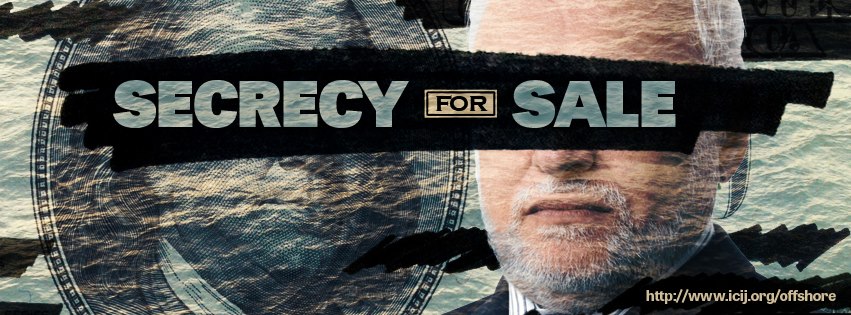International Consortium of Investigative Journalists, 2013

About the Investigation
This series of stories – based on a massive leak of 2.5 million privately-held business records – detailed more than 120,000 offshore companies and trusts, exposing the hidden dealings of politicians and billionaires around the world.
The leaked files obtained by the nonprofit International Consortium of Investigative Journalists (ICIJ) provided facts and figures — cash transfers, incorporation dates, links between companies and individuals — that illustrate how offshore financial secrecy has spread aggressively around the globe. The records detailed offshore holdings in more than 170 countries and territories.
The scope of the investigation was as extraordinary as the leak itself. In what is likely the largest collaboration in journalism history, the project ultimately involved 112 journalists from 42 media partners in 58 countries. Over a 15-month investigation, ICIJ researched and analyzed the documents in collaboration with such media partners as The Guardian and the BBC in the U.K., Le Monde in France, Süddeutsche Zeitung in Germany, the Washington Post, and the Korean Center for Investigative Journalism. They used both modern data mining and traditional reporting to navigate the huge 260 gigabytes of leaked unstructured data covering nearly 30 years. Each reporter went through a list of names related to his or her country, and found potential leads and stories, checking out court records and other public documents. Discussions were held in a secure online forum.
Impact
“Offshore Leaks” sparked a mighty wave of official investigations, policy changes, and high-profile resignations around the globe. Criminal and civil inquiries were opened in the United States, Great Britain, Germany, Israel, Philippines, India, Australia, and Bangladesh. The European Union’s top tax official called the exposé “the most significant trigger” behind Europe’s efforts to tackle the issue. British Prime Minister David Cameron vowed to use his leadership of the G8 to crack down on tax evasion and money laundering, while 60 nations signed onto a G20 pledge to share tax data by 2015.
UK officials improved their company registry by requiring companies to identify owners of offshore accounts, and vowed to force their overseas territories to end corporate secrecy. In Belgium, new laws were passed requiring disclosure of offshore holdings, and Austria and Luxembourg announced plans to lift bank secrecy. Denmark and Canada launched efforts to track down citizens with offshore accounts, while Colombian officials enacted long-stalled efforts to tax offshore holdings. South Korea raided the home of a former president, sought $65 million from 11 others, and began looking into another 245 offshore accounts.
The scope and broad collaboration of the project also drew notice by the media worldwide. “We showed how journalists working together can affect change across the world,” noted ICIJ Director Gerard Ryle, “by applying new technology and old-fashioned shoe leather to vast amounts of leaked information.”
